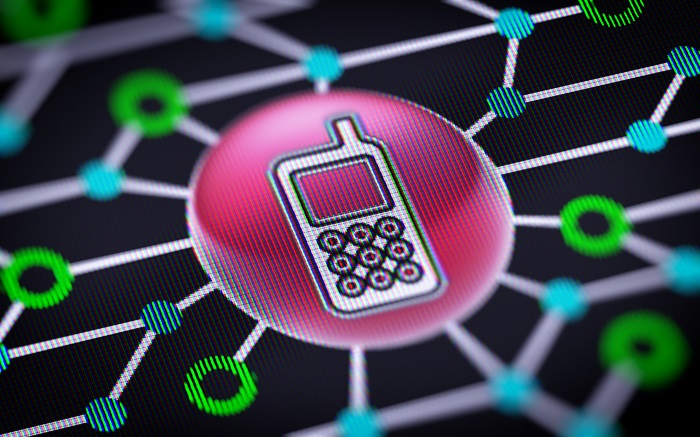 The U.S. Court of Appeals for the Ninth Circuit recently reversed the dismissal of a putative class action under the federal Telephone Consumer Protection Act finding that the plaintiff adequately alleged that the defendant placed calls using an automated telephone dialing system.
The U.S. Court of Appeals for the Ninth Circuit recently reversed the dismissal of a putative class action under the federal Telephone Consumer Protection Act finding that the plaintiff adequately alleged that the defendant placed calls using an automated telephone dialing system.
In so ruling, the Ninth Circuit joined with a similar ruling by the Fourth Circuit, and held that the TCPA’s exception for calls “made solely to collect a debt owed to or guaranteed by the United States” was incompatible with the First Amendment and severed the exception as an unconstitutional restriction on speech.
A copy of the opinion in Duguid v. Facebook is available at: Link to Opinion.
As you may recall, the TCPA, 47 U.S.C. § 227, et seq., prohibits the use of an automatic telephone dialing system (ATDS) to place informational or collection calls or text messages to a cell phone without the user’s prior express consent. The TCPA defines an ATDS as “equipment which has the capacity … (A) to store or produce telephone numbers to be called, using a random or sequential number generator; and (B) to dial such numbers.” 47 U.S.C. § 227(a)(1).
The plaintiff alleged that the defendant used an ATDS to alert its users, as a security precaution, when their account was accessed from an unrecognized device or browser. For unknown reasons, the plaintiff received messages from the defendant despite not being a user of the defendant’s products and services, and never consented to such alerts.
The plaintiff sued on behalf of two putative classes: people who received a message from the defendant without providing their cell phone number to the defendant; and, people who notified the defendant that they did not wish to receive messages but later received at least one message.
The plaintiff alleged that the defendant maintained a database of phone numbers and explained how the defendant programmed its equipment to automatically generate messages to those stored numbers.
The defendant filed a motion to dismiss. The trial court concluded that the plaintiff inadequately alleged that the defendant used an ATDS to send its messages and dismissed the complaint with prejudice.
This appeal followed.
The Ninth Circuit began its analysis by explaining that an ATDS need not be able to use a random or sequential generator to store numbers. Instead, it merely needs to have to capacity to “store numbers to be called” and “to dial such numbers automatically.” Marks v. Crunch San Diego, LLC, 904 F.3d 1041, 1053 (9th Cir. 2018).
The defendant urged the Ninth Circuit to interpret Marks narrowly, as such an expansive definition of an ATDS would capture smartphones because they can store numbers and, using built-in automated response technology, dial those numbers automatically.
The defendant also sought to differentiate its equipment because it stored numbers “to be called” only reflexively as a preprogrammed response to external stimuli outside of its control.
The Ninth Circuit disagreed, stating that the statutory text provides no basis to exclude equipment that stores numbers “to be called” only reflexively. Instead, the equipment need only have the “capacity” to store numbers to be called. 47 U.S.C. § 227(a)(1).
Moreover, the Ninth Circuit noted that phone numbers are frequently stored for purposes other than “to be called,” and provided examples such as merchants and restaurants that stored numbers to identify customers in their loyalty program.
Unpersuaded by these arguments, the Ninth Circuit held that the plaintiff sufficiently pleaded that the defendant used an ATDS.
The defendant also argued that it was entitled to dismissal on the pleadings because the TCPA excepts calls “made for emergency purposes.” 47 U.S.C. § 227(b)(1)(A).
However, because the plaintiff alleged that he did not have an account with the defendant, meaning his account could not have faced a security issue, the Ninth Circuit determined that the emergency exception cannot apply to the defendant’s text messages.
Next, the Ninth Circuit turned to the defendant’s argument that the TCPA’s “debt-collection exception” was incompatible with the First Amendment.
As you may recall, in 2015 Congress added an exception for calls “made solely to collect a debt owed to or guaranteed by the United States.” 47 U.S.C. § 227(b)(1)(A)(iii).
The Ninth Circuit observed that the pre-amendment TCPA was content neutral and consistent with the First Amendment. Gomez v. Campbell-Ewald Co., 768 F.3d 871, 876 (9th Cir. 2014), aff’d 136 S. Ct. 663 (2016).
The TCPA satisfied intermediate scrutiny, as the Ninth Circuit explained, because it was narrowly tailored to advance the “government’s significant interest in residential privacy” and left open “ample alternative channels of communication.” Moser v. Fed. Commc’ns Comm’n, 46 F.3d 970, 974 (9th Cir. 1995).
However, the Ninth Circuit noted that the debt-collection exception changed the framework because the TCPA now favors speech “solely to collect a debt owed to or guaranteed by the United States.”
Because this section “target[ed] speech based on its communicative content,” the Ninth Circuit found the exception content-based and therefore subject to strict scrutiny. Reed v. Town of Gilbert, Ariz., 135 S. Ct. 2218, 2226 (2015).
Under strict scrutiny the debt-collection exception may be justified only if it is narrowly tailored to serve compelling state interests. Reed, 135 S. Ct. at 2226.
The Ninth Circuit observed that the government advanced only one interest: “the protection of personal and residential privacy.”
However, the Ninth Circuit found autodialed calls to collect government debt were “every bit as invasive of residential and privacy rights as any other automated call,” and permitting callers to collect government debt hinders, not furthers, the government’s asserted interest.
Moreover, the debt-collection exception in the Ninth Circuit’s view was not the least restrictive means to protect the public fisc.
As the Ninth Circuit explained, “Congress could protect the public fisc in a content neutral way by phrasing the exception in the terms of the relationship rather than content,” or “[t]he government could also obtain consent from its debtors or place the calls itself.”
Because the debt-collection exception was insufficiently tailored to advance the government’s interests, the Ninth Circuit concluded that the debt-collection exception failed strict scrutiny.
Lastly, the Ninth Circuit explained that only the debt-collection exception violated the First Amendment and severing the exception would not undermine the TCPA.
The Ninth Circuit noted that its ruling was consistent with the Fourth Circuit’s ruling in Am. Ass’n of Political Consultants, Inc. v. FCC, 923 F.3d 159 (4th Cir. 2019), which also held that the debt-collection exception was unconstitutional and severance was the appropriate remedy.
Accordingly, the Ninth Circuit reversed the trial court’s ruling and remanded for further proceedings.


